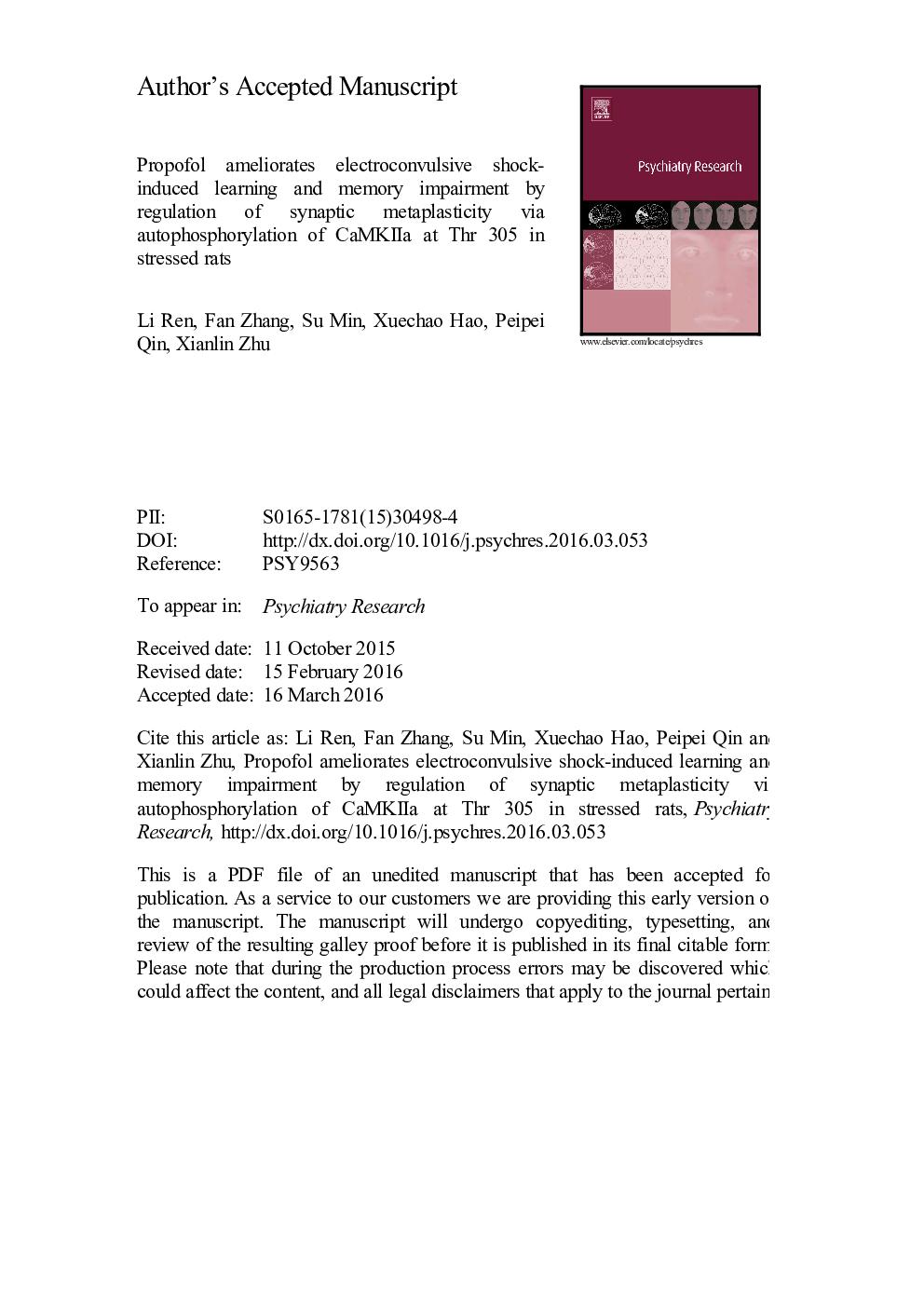| Article ID | Journal | Published Year | Pages | File Type |
|---|---|---|---|---|
| 6813241 | Psychiatry Research | 2016 | 27 Pages |
Abstract
Electroconvulsive therapy (ECT) is an effective treatment for depression, but it can induce learning and memory impairment. Our previous study found propofol (γ-aminobutyric acid (GABA) receptor agonist) could ameliorate electroconvulsive shock (ECS, an analog of ECT to animals)-induced cognitive impairment, however, the underlying molecular mechanisms remain unclear. This study aimed to investigate the effects of propofol on metaplasticity and autophosphorylation of CaMKIIa in stressed rats receiving ECS. Depressive-like behavior and learning and memory function were assessed by sucrose preference test and Morris water test respectively. LTP were tested by electrophysiological experiment, the expression of CaMKIIa, p-T305-CaMKII in hippocampus and CaMKIIα in hippocampal PSD fraction were evaluated by western blot. Results suggested ECS raised the baseline fEPSP and impaired the subsequent LTP, increased the expression of p-T305-CaMKII and decreased the expression of CaMKIIα in hippocampal PSD fraction, leading to cognitive dysfunction in stressed rats. Propofol could down-regulate the baseline fEPSP and reversed the impairment of LTP partly, decreased the expression of p-T305-CaMKII and increased the expression of CaMKIIα in hippocampal PSD fraction and alleviated ECS-induced learning and memory impairment. In conclusion, propofol ameliorates ECS-induced learning and memory impairment, possibly by regulation of synaptic metaplasticity via p-T305-CaMKII.
Keywords
Related Topics
Life Sciences
Neuroscience
Biological Psychiatry
Authors
Li Ren, Fan Zhang, Su Min, Xuechao Hao, Peipei Qin, Xianlin Zhu,
